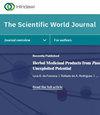印度物理治疗师对心脏手术后出院患者坚持心脏康复计划的认识、态度和做法
Q2 Environmental Science
引用次数: 0
摘要
背景 在大多数情况下,患者会在医院的 CTVS ICU 接受第一阶段的心脏康复治疗,但患者出院后的随访工作却存在一些障碍。物理治疗师在心脏康复的注册和继续方面发挥着重要作用。因此,我们旨在研究物理治疗师对心脏手术后出院患者坚持心脏康复计划的认识、态度和做法。目标 (i) 研究物理治疗师对出院后心脏康复重要性的认识;(ii) 了解物理治疗师对心脏手术患者出院后的态度;(iii) 了解各中心对出院后患者采用何种方法确保其坚持心脏康复。方法 根据研究目标编制了一份调查问卷,共有 127 名物理治疗师回答了问卷。结果 总体答复率为 42.3%;近 35.4% 的参与者表示对心脏康复了解很多,5.5% 的参与者表示了解很少。关于课程内容,36.2% 的参与者表示对 CR 的不同组成部分有中等程度的了解,而 8.6% 的参与者表示对这些内容知之甚少。只有约三分之一(35.7%)的受访者表示印度的 CR 是有效的,95% 的受访者认为 CR 将为印度带来附加值。约 80% 的受访者认为,物理治疗师向病人推荐印度的 CR 具有挑战性。近 35% 的受访者认为,他们 "自己作为物理治疗师 "需要启动 CR,而当被问及谁应该在该国主动启动此类计划时,略低于 70% 的受访者认为医生需要选择和推荐病人。略高于 40% 的受访者表示,保险公司也参与了 CR 计划的启动。结论 物理治疗师对心脏康复有很好的了解。然而,他们对坚持锻炼方案的态度和做法受到临床医生和患者层面各种因素的影响。本文章由计算机程序翻译,如有差异,请以英文原文为准。
Knowledge, Attitude, and Practice of Physiotherapists about Cardiac Rehabilitation Program Adherence among Patients Discharged from the Hospital after Cardiac Surgery in India
Background In most settings, patients receive phase 1 cardiac rehabilitation in CTVS ICU at the hospital, but there are several barriers to follow-up after patients are discharged from the hospital. Physiotherapists play an important role in the enrolment and continuation of cardiac rehabilitation. Thus, we aim to study the knowledge, attitude, and practice of physiotherapists about CR program adherence among patients discharged from the hospital after cardiac surgery. Objectives (i) To study the knowledge of physiotherapists about the importance of cardiac rehabilitation after discharge; (ii) to know the attitude of physiotherapists towards cardiac surgery patients after discharge; and (iii) to know what approach various centres are applying for patients after discharge to ensure adherence to cardiac rehabilitation. Methods A questionnaire was developed with reference to the objectives of the study, which was answered by a total of 127 physiotherapists. Results The overall response rate was 42.3%; nearly 35.4% of the participants indicated that they knew a lot about CR, while 5.5% said they knew very little. Regarding the program's content, 36.2% of participants reported having a medium degree of awareness of the diverse CR components, while 8.6% reported having very little knowledge of them. Only about one-third, 35.7% stated that CR in India is effective and 95% believed that CR will have an added value for the country. Approximately 80% of respondents thought that it would be challenging for a physiotherapist to recommend patients to a CR in the nation. Nearly 35% of respondents believed that they, “themselves as physios,” needed to commence CR, and slightly less than 70% thought that doctors were required to choose and refer the patients when asked who should take the initiative to start this kind of programme in the country. A little over 40% of respondents said that insurance firms are also involved in starting a CR programme. Conclusion Physiotherapists have good knowledge of cardiac rehabilitation. However, their attitude and practice towards adherence to exercise protocols are confounded by various clinician- and patient-level factors.
求助全文
通过发布文献求助,成功后即可免费获取论文全文。
去求助
来源期刊

The Scientific World Journal
综合性期刊-综合性期刊
CiteScore
5.60
自引率
0.00%
发文量
170
审稿时长
3.7 months
期刊介绍:
The Scientific World Journal is a peer-reviewed, Open Access journal that publishes original research, reviews, and clinical studies covering a wide range of subjects in science, technology, and medicine. The journal is divided into 81 subject areas.
 求助内容:
求助内容: 应助结果提醒方式:
应助结果提醒方式:


